Cork city’s ‘Night Mayor’ surveys the after-dark economy
A year into her new role, Fiona Collins, Cork City Council’s Night-Time Economy Advisor, talks to T+D about the role, its limits, what she’s accomplished so far, and, yes, the Event Centre.
In late 2023, Night-Time Economy Advisors, also known as ‘Night Mayors’, were appointed in Dublin, Cork, Limerick, Galway, Kilkenny, Drogheda, Sligo, Buncrana and Longford as part of a pilot programme. Their job is to inject a bit more life back into nightlife and, as an ambassador, to get the right mix of people in the same room to help invigorate city centres after dark.
In Cork, Fiona Collins, chair of the Guinness Cork Jazz Festival was appointed to the role in October 2023. After a number of interview requests, Tripe + Drisheen recently sat down with Fiona to discuss the new Night-Time Economy Strategy, and the issues and shortcomings in Cork’s night-time economy.
Fiona began her career in construction, moving away to become a regional development coordinator for Chartered Accountants Ireland before taking on her role with the Jazz Festival.
“I’ve also worked my way up through the Jazz Festival, I started as a volunteer and ended up joining the committee and have been chair for the last number of years. I’m actually still chair of the festival,” she says.
While public announcements were made in Limerick and Dublin stating who was appointed to the role, in Cork it was more muted, bar an undated press release which appeared on the council website five months ago. Fiona denies that City Hall were being evasive about her role, and that the NTE Advisor does not need to be front and centre of every announcement.
“I don't think people need to know me, they need to know about what's happening,” Fiona said, highlighting an article in T+D in which we reported on an initiative she had helped manage in the Midsummer festival.
In the role for just over a year as NTE Advisor, she recently helped organise a gig on the roof of the North Main Street car park in collaboration with the Good Room. She also introduced Coffee House Lates, which saw selected coffee shops staying open for longer in the evening, and helped usher in an initiative to get more city centre businesses to leave their lights on through the night.
In November, the City Council released its Night-Time Economy Strategy, providing a ‘template for the future of Nightlife in Cork’.
“I am here now 12 months nearly, so I'm delighted now that that's (NTE Strategy) out to mark my kind of one-year anniversary.”
The strategy is intended as a beginning, Fiona says, and she’s keen to point out that it isn’t perfect. It splits the night into three categories; the 6.00pm - 9.00pm category for ‘after work activities, family activities, eating out’, the 9.00pm - 3.00am for ‘social and cultural activities – city as a playground at night’, and the 3.00am – 6.00am for ‘Cleaning and set up for the next day’s business such as deliveries and maintenance.’
Finding a third space
The strategy’s goals are to ‘engage, explore, examine’. That includes engaging with local communities, examining the possibility of a late night event for Cork on a Fork, exploring the demand for non-alcohol events and venues in the city, examining the potential of expanding the existing festivals and arts events at night, and examining the need for ‘third spaces’.
“That third space is a place where you can go and be yourself, it's not home, it's not work, or it's not college, it's that extra space where you go be yourself, and you're happy you feel safe, you feel comfortable, you feel accepted.”
“The third space for a lot of younger people is online,” she says, “but I think people really need a community within the city. They need to feel that acceptance and have those connections in the city as well.”
In the 2025 budget, €2.5 million was allocated to support the ongoing development of the Night-Time Economy, the nine Night-Time Advisors, as well as a new grant scheme to support small, grassroots venues.
When asked if she believes Cork has a venue problem, Fiona says that “some would argue yes, some would argue no.”
Cork definitely has a large venue problem in the Event Centre saga, but that’s been kicking around long before Fiona’s appointment.
“There's no quick fix for music venues at the moment, and I understand the importance of music venues. We're actually quite lucky we have a few of them in the city, and I suppose you'll have to include the pubs as well and within that music venue space because they put on music,” she says.
She cites an inititaive that venues in Bristol put together to ease their problems.
“Bristol have brought out a new grassroots idea with the Music Venue Trust in the UK, where they're putting a Pound on every ticket that’s sold in Bristol and that goes to support grassroots venues. I think we're a bit away from that here, that's why it's not included in the plan.”
“We have less (venues), probably, than we would have had maybe 10-15 years ago, but there’s still a very broad base of music venues there, there's still a very broad collective and a diversity there,” she says. She cites Liquid Lounge, An Spailpín Fánach, Benny McCabe’s bars and Coughlan’s as good venues in the city.
The city nearly got a new mid-sized venue in 2021, when a planning application was submitted and subsequently withdrawn to convert McLaughlin’s on Lower Glanmire Road to a music venue. 2022 also saw the emergence of a 150-capacity venue in Crack Jenny’s, later to become Dali. The Theatre Development Centre, used for 9.57(sunset) during the Cork Midsummer Festival, has been filled by the Cork Theatre Collective, as reported by T+D earlier this month.
At the moment, The Half Moon Theatre and The Green Room, both attached to Cork Opera House, are going mostly unused, but the offering has improved.
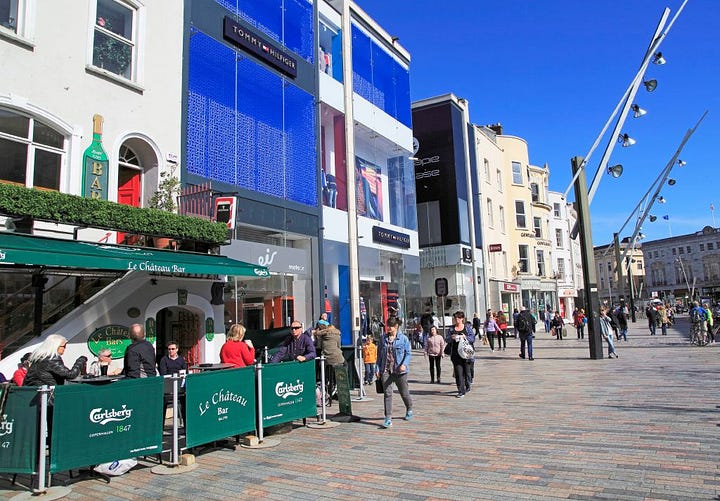
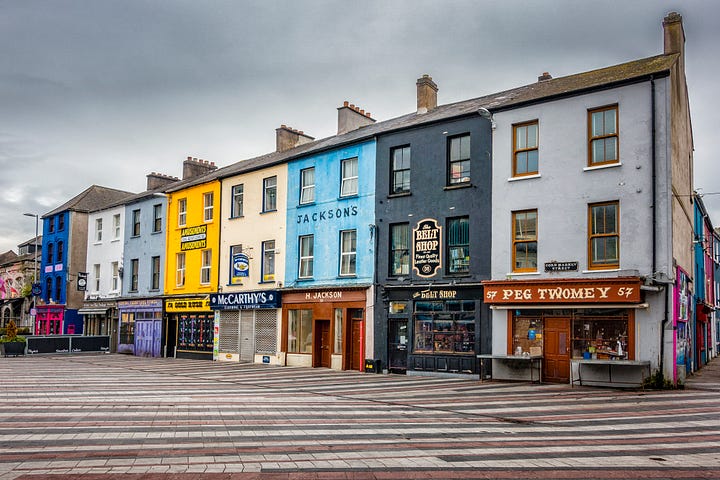
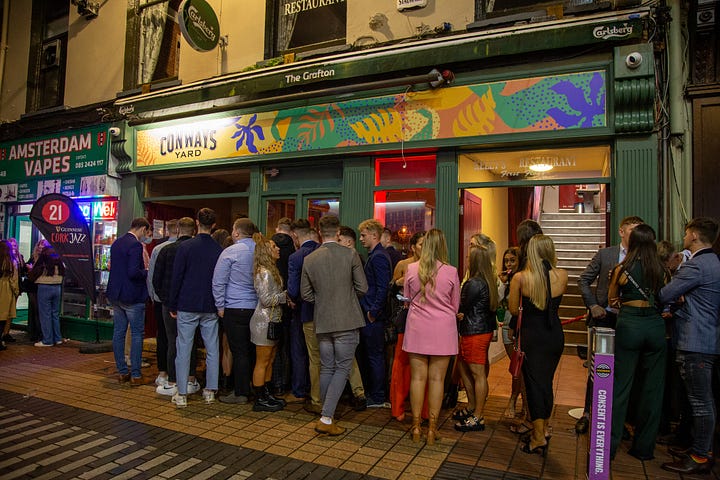
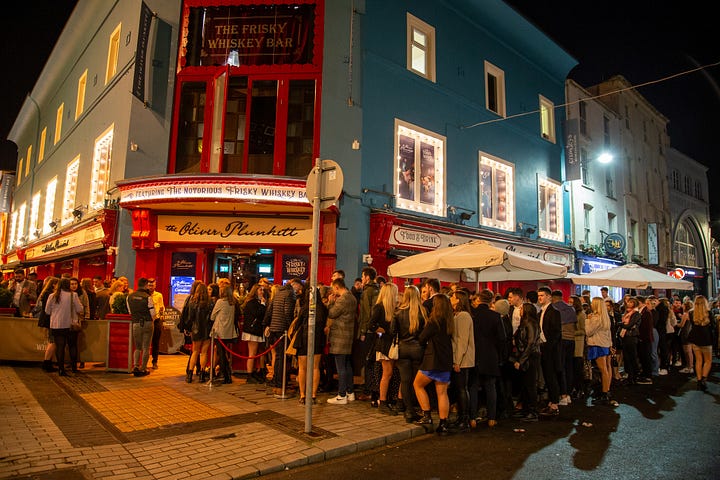
Fiona stresses that there is very little she can do to help venues, or help get new ones up and running.
“I can't open a venue as Night-Time Economy Advisor, I can help someone to do that or I can help someone to run an event but then that event can’t sell alcohol, it will have to be an alcohol-free event, and that was the purpose of the event on North Main Street, it was a free, alcohol free event.”
That event, a concert atop the North Main Street multistorey car park for Culture Night, resulted in a performance by Fixity and Ana Palindrome, in collaboration with The Good Room. It was novel, for Cork, and required some joined-up thinking, and Culture Night was the perfect time to try it. But Fiona says she’s limited in what she can do, despite pulling this one off.
“I am not a fix-it-all for the night-time economy. I wish I was, I really wish I was a fix-it-all and could say right this is what's happening here, this is what's happening here, but there are still so many different stakeholders involved in the night-time economy that I have to try and facilitate as much as I can,” she says.
“But I suppose the venue argument needs to have a rounder picture on it, you need to, I suppose, look at it from a commercial perspective or whether it's more of an arts perspective and how we fix that then.”
Cue, the Event Centre, which once more shows up how maddeningly slow the state in conjunction with private sector is to get going on a project that had a sod turning going on nine years ago. The City Council has so far poured €1.5m in to the infamous non-building site. Fiona accepts that it has been a saga, but that it isn’t unique.
“I would love to see the event centre in Cork, I would love finally to have a five or six thousand-seater Events Centre in Cork, I think it would be phenomenal,” she said. “It's really funny. I was talking to Carly Heath recently in Bristol, they're waiting 30 years for their Arena.”
“It's annoying at this stage. I think if it had been, because you know there was a competition between the two of them, one in the Docklands and one here, my gut would tell me that the Docklands one probably would have been built and used by now if it was there.”
That could come back into play with the news this past weekend in The Examiner that the group behind the Marina Market are putting together a proposal to bring the Event Centre to the docklands. But it’s not like the site down there has all its eggs in order: the Marina Market was set up without planning permission and only secured it last year, for a period of five years. On top of that, for the city centre, especially, the area around Barrack Street and South Main Street, the Event Centre is a once-in-a generation chance to draw people to town. Expect serious lobbying on both sides of City Hall.
Music and alcohol
The strategy does not mention the city’s original music scene, something which is a major part in the city’s cultural life and nightlife. While Fiona worked in collaboration with The Good Room to bring two Cork bands to the rooftop on North Main Street, she argues that there is not much else she can do.
“I can't employ local artists, they have to be employed by a venue, so it is up to the venue to apply for funding so that we can employ local artists,” she says. “I'm not a promoter. I can't go organising lots of different events to employ all the different people in Cork.”
Under the last government, the focus of the changes in the night-time economy were a change in licencing laws to later openings, led by the lobby group Give Us The Night. It has been controversial, and faced some backlash from some bar managers in Cork. Recent pilot schemes to test the waters with how late they could go finished at 3:30am. What the next government will do remains to be seen.
“I think the backlash against those new licensing laws have been very unfair,” Fiona says.
“Will clubs open until 4 am in the morning here in Cork if they've got the opportunity? I don't think they’ll do it every weekend. I think there are some places that would apply for the licence in the hope that there are certain times during the year that they might stay open to 4 am if they're entitled to do so.”
The focus now appears to be diversifying the offering in the city away from alcohol-centred events and venues.
The strategy mentions that it will ‘explore the demand for non-alcohol events / venues in the city’, which leads to the question of whether the bar and alcohol is too much of a focal point in Irish music and nightlife.
“We are very lucky in Cork, we have a whole festival sponsored by a drinks company and it just means so much to the city to have that festival. Heineken sponsor a number of events but they're also usually tied with sport. But there are other avenues for people to be involved in sponsorship of music,” she says.
However, alcohol sponsorship, and sponsorship in general, is all about selling a product. After all, the jazz festival is officially called the Guinness Cork Jazz Festival, and in official venues, only Diageo products can be sold. Although it has featured great acts over the years, it’s a music festival tied to an alcohol company.
The Arts Council balances this by funding events where the art is the focal point, like the Midsummer Festival.
“But then sometimes you're adding commerciality to a cultural experience that maybe doesn't need to be there and I suppose yes, that's where City Hall comes in, the Arts office comes in, or the Arts Council themselves coming in the whole being able to offer funding to keep cultural peace alive in it,” Fiona says.
Statistics show that young people are drinking less than the generations before them, and the alcohol-free spaces that the strategy discusses aims to cater to this change. Fiona believes that the city needs to offer them something different.
With Coffee House Lates, a number of coffee shops across the city centre stayed open until 9pm on Thursday and Friday nights during the last week of November. It’s arguably a small step, and only once-off, but perhaps it points to what the NTE Advisor can help start in the hope that such interventions will grow, if the demand and interest is there.
“There's a shift away from going to the traditional pub and going out for a few drinks, younger generations want that experience, they want that experiential treatment that they can share on Insta, that they can share on TikTok and they want that vibe, they're not happy to go out every week to the same place and to experience the same thing.”
And while the strategy isn’t perfect, it’s a recognition that we need a more varied nightlife in the city. What Cork’s nightlife looks like five and ten years from now remains to be seen, but at the very least there’s a plan in place to try and vary things up, and for at least another year a ‘Night Mayor’ to help steer it.
From the archive:
Bowling for Cork
Time spent in West Cork may not feel complete without, at some point, happening across one of the many road bowls tournaments that regularly fill the county's countryside roads. The fixtures occur regularly, so it may not be surprising to learn that there are in fact 21 ch…

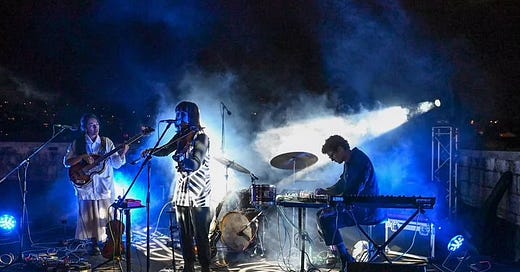




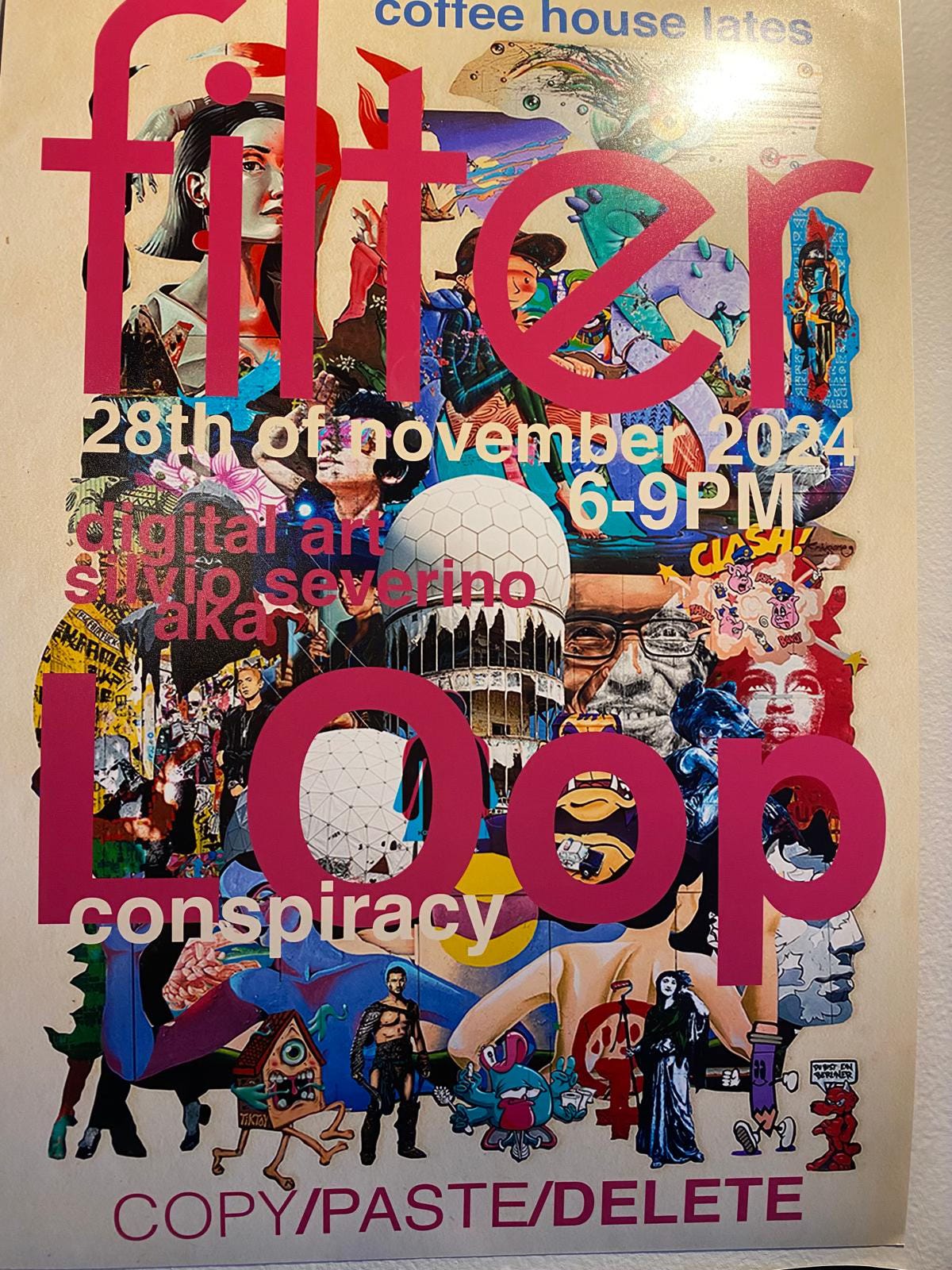
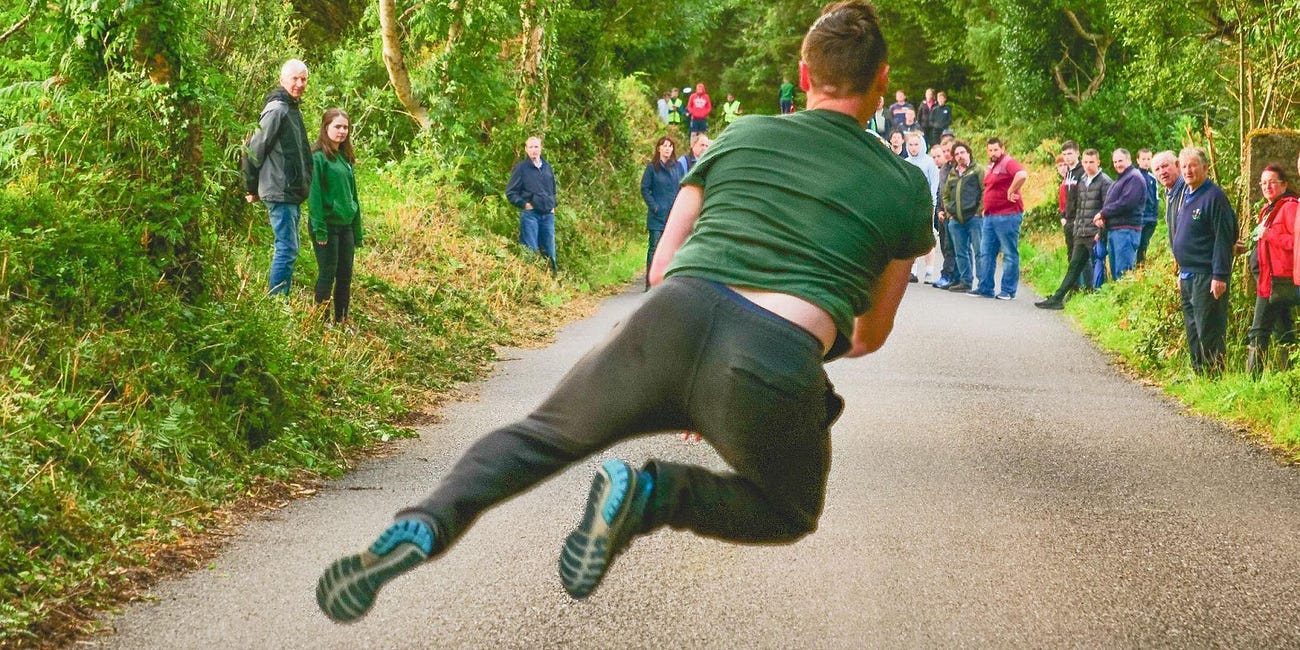
Check out the new proposed development on Model Farm road in an article in today's Irish Examiner. If you want to check what the site currently looks like on Google maps, it is actually blocked out! Incredible.. How does that happen and why?
It’s absolutely bonkers that Fiona is trying to create a night time economy on alcohol free events GET REAL. The city is crying out for fun craic and atmospheric occasions. All over European cities are buzzing and alive with bars and clubs hopping till 6am. Are these people for real and more importantly are they running our city!!! By all means run alcohol free events but build our city’s nightlife experience with alcohol events morning noon and night.